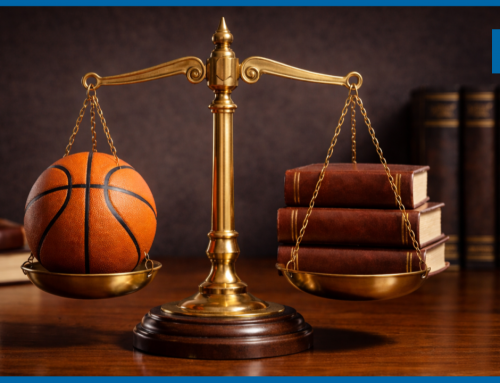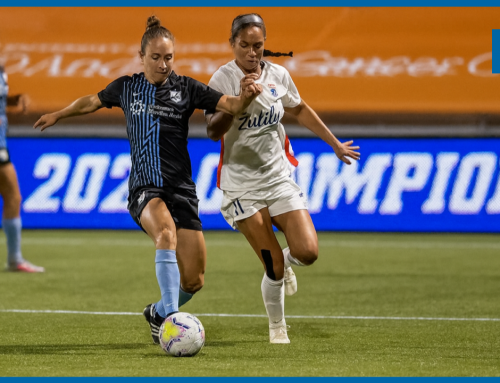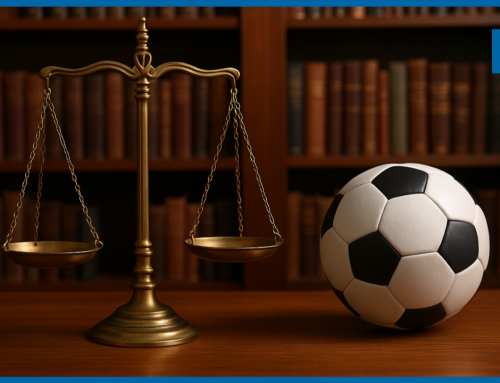Published by the firm Winter – Dávila & Associés
Paris, 5 June 2024
CAS 2023/A/10093 Russian Olympic Committee (ROC) v. International Olympic Committee (IOC)
On the topic of sport’s law, and in the context of the upcoming Olympic Games, this article looks back at one of the many consequences of Russia’s invasion of Ukraine.
Following the proclamation of the incorporation of the territories of Donetsk, Kherson, Luhansk, and Zaporozhye, four regional public Olympic organizations were created. This led the Russian Olympic Committee (ROC) to recognize the affiliation of each of these committees with its membership organization.
In response, the International Olympic Committee (IOC) raised concerns about a potential violation of the Ukrainian Olympic Committee’s territorial integrity, invoking rules 28.5 and 30.1 of the Olympic Charter .
The ROC argued that, according to the Russian constitution, it was not exercising jurisdiction outside the limits of the Russian Federation.
Further, on October 12, 2023, the IOC suspended the ROC with immediate effect, stating that the inclusion of regional sports organizations under the authority of the National Olympic Committee (NOC) of Ukraine violates the Olympic Charter.
On October 31, 2023, the ROC filed a statement of appeal before the Court of Arbitration for Sport (CAS). The ROC claims that the IOC’s decision was unlawful and asks the Arbitral Tribunal to set aside the decision on the grounds of a violation of the principles of (i) Legality, (ii) Equality, (iii) Predictability, and (iv) Proportionality.
In contrast, the IOC rejects all the ROC’s claims, maintaining its decision.
Through the award and before exploring the alleged violations, the Arbitral Tribunal set out the relevant provisions of the Olympic Charter (OC) for the case at hand.
“7 Mission and role of the NOCs
- (…) to develop, promote and protect the Olympic Movement in their respective countries, in accordance with the Olympic Charter.
- The NOC’s role is 2.1 to promote the fundamental principles and values of Olympism in their countries, (…) 3. The NOCs have the exclusive authority for the representation of their respective countries at the Olympic Games (…) 4. The NOCs have the exclusive authority to select and designate the interested hosts which may apply to organise Olympic Games in their respective countries (…) 6. The NOCs must preserve their autonomy and resist all pressures of any kind, (…) pressures which may prevent them from complying with the Olympic Charter. (…) 9. (…) IOC Executive Board may take any appropriate decisions for the protection of the Olympic Movement in the country of an NOC, including suspension of or withdrawal of recognition from such NOC (…).
28 Composition of the NOCs (…)
5 The area of jurisdiction of an NOC must coincide with the limits of the country in which it is established and has its headquarters.
30 Country and name of an NOC
- In the Olympic Charter, the expression “country” means an independent
State recognised by the international community.”
As mentioned, the ROC’s first ground is the violation of the principle of legality and Violation of the Principle of Predictability
YOU CAN ALSO READ: The four Chambers of The Court of Arbitration for Sport
1. The mischaracterization of the ROC decision of 5 October 2023.
The ROC claims that the appealed decision denatures its recognition of membership for the four regions. The ROC asserts that it has recognized new entities representing territories considered as part of the Russian federation since September 2022. On the first sub-ground, the Arbitral Tribunal simply reminds that “it is not in dispute that the ROC admitted the sports organizations of the Regions as members of the ROC. The Panel considers that the Decision did not mischaracterize the ROC’s decision.”
2. Matters of public international law
The ROC argues that the “limits” and the “territorial integrity” of a country are matters of public international law. These matters fall outside the scope of jurisdiction of the IOC and CAS.
The arbitral tribunal reminds that the IOC is governed by the Olympic Charter (OC), which defines a “country” as an independent state recognized by the international community, for the purpose of applying the OC. The Panel concludes that the IOC’s decision was based on the application of Rules 28.5 and 30.1 of the OC to determine an alleged violation of the OC, rather than determining the legality of Russia’s annexation of part of Ukraine. Therefore, the IOC acted within its competence.
3. Rules 28.5 and 30.1 of the OC
The ROC contends that the Olympic Charter (OC) does not allow the IOC to decide on the limits of a National Olympic Committee’s (NOC) jurisdiction.
The Arbitral Tribunal rejected this interpretation by reading Rules 28.5 and 30.1 in conjunction. The Tribunal concluded that “an NOC can only exercise territorial jurisdiction within the limits of the boundary of an independent state recognized by the international community.”
Because the international community recognizes the integrity of Ukraine, the ROC, by recognizing the affiliation, violates Rules 28.5 and 30.1 of the OC.
Regarding the concept of “international community” challenged and considered “vague” by Russia, the IOC relied on Resolution ES-11/4 of the UN General Assembly[1], adopted on 12 October 2023, which called upon “all states to not recognize these territories as part of Russia.”
The Panel recognized that even if this resolution is not binding, it considers it sufficient evidence of the international community’s recognition of the “limits” of this state within the meaning of Rule 28.5. The Panel based this consideration on the overwhelming majority of UN General Assembly members (143 in favor) and its alignment with other resolutions[2].
4. Legal basis for the suspension of the NOCs
The ROC maintains that the Olympic Charter does not stipulate that a National Olympic Committee may be suspended for accepting the inclusion of sports organizations from disputed territories incorporated in accordance with the law of that NOC’s country.

AI-generated photo
5. Crimea and Sevastopol
The ROC contends that when the sports councils of Crimea and Sevastopol were included as members of the ROC in 2016, the IOC failed to suspend Russia. The ROC adds that, a majority of the international community had not recognized and still has not recognized Crimea or Sevastopol as part of the Russian Federation. According to the ROC, this constitutes an unexplained unequal treatment, thereby violating the principle of Legality and Predictability.
The IOC states that there is no analogy between the two cases and that it was not informed in 2016 of the ROC’s admission of Crimea and Sevastopol as members.
The Arbitral Tribunal while acknowledging the difference, rejects ROC’s allegations of violation of the principle of legality based on this difference. The Arbitral Tribunal firstly states that there is no evidence that the IOC was informed of such admissions. Finally, it concludes that according to Swiss Law the treatment of the ROC in other cases cannot serve as a basis for allegations of unequal treatment[3].
In conclusion, the Panel finds that the IOC, by adopting the Decision, did not breach the principle of legality nor Predictability.
6. Violation of the Principle of Equality?
As an introductory statement, the Panel focuses on the principle of equality in sports law and under Swiss law. CAS jurisprudence asserts that “similar cases must be treated similarly, but dissimilar cases could be treated differently”. The same principle is recognized under Swiss law.
The ROC argues that, historically, the IOC has never reacted in a comparable manner to cases like the one at hand. Accordingly, the ROC contends that its suspension is contrary to the principle of equality among the NOCs. The ROC cites as evidence different cases such as those involving Armenia and Azerbaijan, the dispute over the territory of Kashmir, and the Israeli-Palestinian conflict.
In its defense, the IOC comments that these situations differ significantly, but the IOC has consistently relied on the borders recognized by the international community to determine the jurisdiction of the relevant NOC.
According to the Arbitral Tribunal, the claims made by the ROC are unsubstantiated. There is no evidence to suggest that the IOC has applied “double standards”. The IOC consistently relies on Rule 30.1 and the stance of the international community to define the jurisdiction of a NOC.
Consequently, the IOC did not breach the principle of equality by suspending the ROC in this case.
YOU CAN ALSO READ: Legal explanation of the sports sanctions imposed on Russia
7. Violation of the principle of Proportionality?
The ROC argues that the IOC decision exceeds what is reasonably required to impose such sanction.
According to the ROC:
- There was no justifiable goal or objective for the Decision.
The territorial integrity of Ukraine could not be a justification because the Olympic movement must apply political neutrality.
The panel rejects ROC’s first argument, the IOC’s obligation is to ensure that each NOC complies with the OC and prevent them from interfering with the territorial jurisdiction of another NOC.
- The measure taken was not necessary to reach the goal.
The ROC argues that it has no influence on the armed conflict nor on the Russian Constitution, which considers these regions as part of Russian territory.
On this point, the Arbitral tribunal highlights that the IOC decision did not sanction the armed conflict but the ROC’s acceptance of the disputed territories as member.
- The suspension was disproportionate and affected the athletes.
The Arbitral Tribunal highlights that, under certain conditions, Russian athletes will be able to participate.
- The decision affects Russian athletes and violates the 4th
Fundamental principle of Olympism[4].
According to the panel, the rights of the athletes are sufficiently protected as long as they are and remain neutral.
- the sanction is disproportionate because there is no deadline.
The Arbitral Tribunal comments that this sanction was the least intrusive measure that the IOC Executive Board could have imposed under Rule 59.1.4. The Panel considers this to be an entirely reasonable response by the IOC to a serious violation of the OC.
Conclusion
To conclude, the arbitral tribunal holds that the IOC’s decision did not breach or violate any of the principles of l (i) Legality, (ii) Equality, (iii) Predictability, and (iv) Proportionality and dismisses ROC’s appeal.
This award delineates the boundaries between the competences of the IOC and public international law. The Arbitral Tribunal reaffirmed its lack of jurisdiction to rule on the annexation of territories or on the existing boundaries. This limitation underscores the specialized scope of the IOC’s authority within the context of the Olympic Charter.
The fact that the sentence is based on the concept of international community raises questions about the definition of international community. Thus, what would have been the solution adopted if the UN resolution had not had such an overwhelming majority?
References:
[1] Resolution ES-11/4 of the UN General Assembly adopted on 12 October
2023: “the referendums held in the Donetsk, Kherson, Luhansk and Zaporizhzhia oblasts which were conducted under disputed circumstances and unrecognized by the international community, as well as their subsequent annexation by Russia, are invalid and illegal under international law. It calls upon all states to not recognize these territories as part of Russia. Furthermore, it demands that Russia ‘immediately, completely and unconditionally withdraw’ from Ukraine as it is violating its territorial integrity and sovereignty”.
[2] The European Council of the EU “illegal annexation by Russia of Ukraine’s Donetsk, Luhansk, Zaporizhzhia and Kherson regions” stating that “the European Union will never recognize this illegal annexation”
(ii) The CoE: “illegal annexation by Russian” and “Crimea, Kherson, Zaporizhzhia, Donetsk and Luhansk are Ukraine”.
(iii) G7 “illegal attempted annexation by Russia of Ukraine’s Donetsk, Luhansk, Zaporizhzhya and Kherson regions”.
[3] As a matter of Swiss law, for previous practice to constitute a source of law within an association, it must reach a level of “Observanz”.
[4] “[t]he practice of sport is a human right. Every individual must have the possibility of practicing sport, without discrimination of any kind and in the Olympic spirit, which requires mutual understanding with a spirit of friendship, solidarity and fair play”
LEGAL NOTICE: This article has been prepared for informational purposes only. It is not a substitute for legal advice directed to particular circumstances. You should not take or refrain from taking any legal action based on the information contained without first seeking professional, individualized advice based on your own circumstances. The hiring of a lawyer is an important decision that should not be based solely on advertisements.
If you want advice related to the subject of the
article do not hesitate to contact us!
(email: contact@wdassocies.com)










Leave A Comment